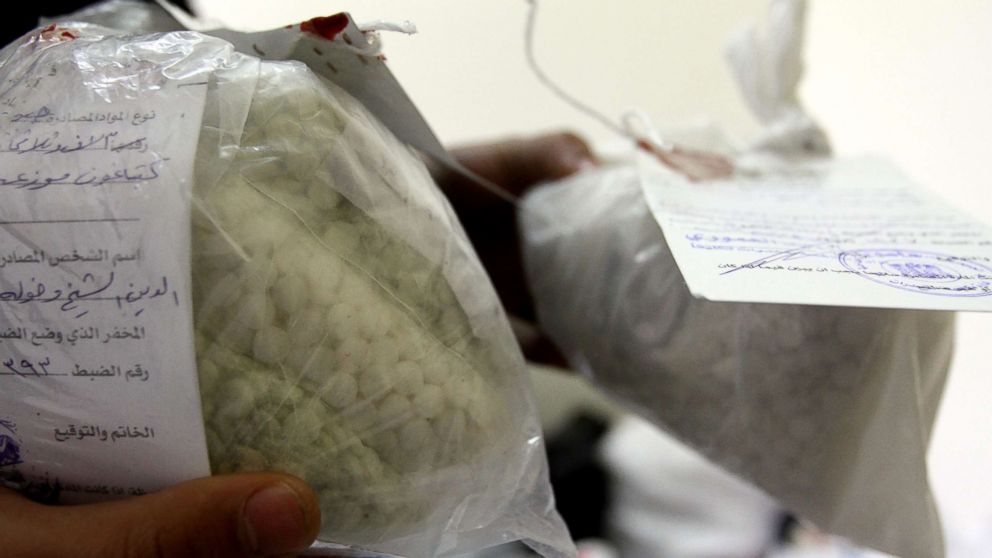ISIS-linked stimulant Captagon more dangerous than previously thought, scientists say
Captagon is an illegal amphetamine-type stimulant that has been linked to ISIS.

— -- A banned amphetamine-type stimulant linked to substance abuse in the Middle East and said to be favored by ISIS is more potent than previously thought, scientists said Wednesday.
Fenethylline, also known by its brand name Captagon, is a combination of amphetamine, a stimulant, and theophylline, a drug traditionally used to treat respiratory diseases such as asthma. The latter greatly enhances the former's psychoactive properties, making the codrug a powerful amphetamine, according to scientists from the Scripps Research Institute in La Jolla, California, who published their findings in the journal Nature on Wednesday.
“It boosts the overall stimulant activity,” Cody Wenthur, the study's co-author and a postdoctoral research associate at the Scripps Research Institute, said in a statement. “You get a faster onset than other amphetamine drugs and a stronger effect than just amphetamine alone.”
Captagon has been around for a while, Wenthur noted. It was used therapeutically before it became illegal in the United States and most countries in the 1980s. But the study's findings may explain why the illicit stimulant has gained popularity in recent years and is abused by young people in the Middle East.

Kim Janda, who co-led the Scripps Research Institute team on the study, said he first became interested in Captagon after it had made headlines around the world as a potential performance-enhancing stimulant and source of "pharmacological morale" for ISIS fighters.
The synthetic psychoactive stimulant is said to make fighters more alert, focused and resistant to fatigue. Moreover, production and global trafficking of Captagon, which is relatively cheap and easy to make, as well as counterfeit tablets are reported to be a source of revenue for militant groups in Iraq and Syria.
Although using amphetamines to energize soldiers is nothing new, Janda said he wondered why Captagon was becoming the drug of choice in war zones in the Middle East. Typical amphetamines are simpler to synthesize, he added. So Janda's team developed a scientific technique they call a "dissection through vaccination," which allowed them to comb through the drug's chemical properties and test each component for its effects on the brain, while also determining a way to stop its rapid onset.
That's how Janda's team discovered that Captagon produces its combat-boosting effects from a functional synergy between amphetamine and theophylline.
As a result, the scientists developed a potentially effective vaccine that can neutralize the drug's effects in mice -- a substance that could be developed further for use in humans.
"This discovery also provides a path for combating Captagon's abuse," Janda said in a statement.




